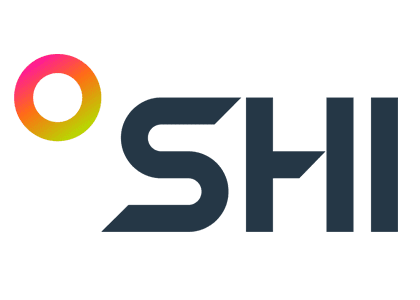Top 5 new trends from our expert CIO advisory board
From attaining skilled cloud support to consolidating your security vendor list, these are the issues rattling the minds of industry CIOs.

SHI recently hosted our CIO advisory board, in which IT leaders from across the country gathered to discuss and brainstorm solutions to critical industry challenges.
These sessions are great opportunities to gain valuable insight from IT leaders at the top of their game. From cloud support and repatriation to security vendor consolidation, here are the latest issues and trends you should be aware of, straight from the minds of industry CIOs:
1. The demand for cloud platform support is accelerating
To efficiently manage workloads in cloud platforms such as AWS, you need top-tier IT support. But in a market short on job-seeking talent, you can’t afford to wait for skilled applicants to fall into your lap.
In fact, according to Pluralsight’s State of Cloud report, 75% of tech leaders are building all new products and features in the cloud – but only 8% of technologists have extensive experience working with cloud-related tools.
That skills gap is felt now more than ever, as CIOs are laying the groundwork for their business’ future. Our advisory board has made it clear – rather than wait to hire new teams, organizations are increasingly incorporating training into their cloud contracts. The goal? Develop new skills within existing teams to increase their capabilities and shorten the wait for support.
2. Optimize SaaS spending without sacrificing management capabilities
Software-as-a-Service (SaaS) consumes a significant portion of many organizations’ IT budgets – with 50% of enterprise organizations wasting at least 10% of their budget on SaaS applications. For many organizations, SaaS optimization is a high priority. Most CIOs in our advisory board reported having a goal to reduce SaaS spending by as much as 20%.
But as you seek to optimize your SaaS position, keep in mind the expertise and qualified talent required to manage your existing applications and run your workloads. Don’t let reductions hurt your management capabilities and expose your organization to unnecessary risks and disruptions.
3. Cloud repatriation is cost-prohibitive
Believe it or not, cloud repatriation wasn’t as popular as you might think for our CIO advisory board. The idea of returning applications from the public cloud back to your own infrastructure may seem like a reasonable trend, especially for those hoping to strengthen their infrastructure resilience. But the high costs and resources required make cloud repatriation out of reach for many organizations.
Instead, CIOs in the hospitality and retail spaces are reporting an increased demand for devices, applications, and data processing at the network edge. The idea is simple: reap the benefits of cloud computing without giving up control of data. The challenge? Overcome the steep learning curve that comes with running workloads in a hybrid cloud environment.
4. Financial trends are shaping IT decisions
Our CIO advisory board wholeheartedly agreed with CompTIA’s IT Industry Outlook 2023 report, which claims the initial stage of mass cloud adoption is over. Now, as the barrier to entry gets lower and lower for teams to chase their own cloud solutions, organizations like yours must master how you handle the complexities of a distributed approach to multi-cloud environments.
The result? CIOs are focusing more and more on developing an effective FinOps strategy that aligns IT and finance teams. Doing so helps you:
- Accurately report the value and ROI of your cloud infrastructure spend
- Empower leadership to make informed, aligned decisions
- Reduce overall cloud infrastructure costs
- Gain buy-in from non-IT stakeholders
5. Cybersecurity vendor consolidation is on the horizon
It’s too common for organizations to have as many as 40 different security platforms in their environment. Managing dozens of disparate security platforms exposes you to significant challenges, including:
- Spreading your IT resources too thin
- Misconfiguring your platforms and policies
- Increasing your attack surface
Contextualizing and prioritizing the sources of your security data is crucial to avoid information overload.
That’s why our CIO advisory board is reducing their complexity and risk exposure by consolidating their selection of security vendors. CIOs need to measure the risk of cyber incidents, identify potential threats, and develop an effective incident response plan. When doing so requires shuffling through a myriad of different platforms, it costs you critical time and effort.
What’s next
At this year’s CIO advisory board, IT leaders have made clear the issues hampering organizations in 2023. If you struggle with attaining skilled talent to support your cloud platforms, reclaiming control of your cloud data, or any other challenges raised during this session, the time is now to consider:
- Training your existing teams to support the cloud
- Maximizing your investments with SaaS optimization
- Pivoting from total cloud repatriation to a more cost-efficient hybrid cloud
- Unifying the business decisions of your IT and financial leaders
- Consolidating your list of cybersecurity vendors to reduce complexity and risk exposure
All of this results in you better aligning your IT investments with your overall business strategy. Doing so will preserve operational budgets, improve cyber incident risk measurement, and give you the leeway you need to solve what’s next for your organization.
To learn more about how these insights can help your organization, contact your SHI Account Executive today.




